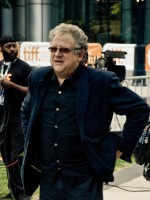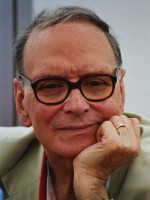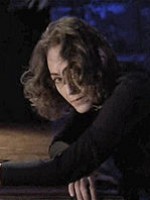Bernardo Bertolucci is a Actor, Director, Scriptwriter, Producer and Assistant Director Italien born on 16 march 1941 at Parma (Italie)

Bernardo Bertolucci ([berˈnardo bertoˈluttʃi]; born 16 March 1940) is an Italian film director and screenwriter, whose films include The Conformist, Last Tango in Paris, 1900, The Last Emperor, The Sheltering Sky and The Dreamers. In recognition of his work, he was presented with the inaugural Honorary Palme d'Or Award at the opening ceremony of the 2011 Cannes Film Festival.
Bertolucci was born in the Italian city of Parma, in the region of Emilia-Romagna. He is the elder son of Ninetta, a teacher, and Attilio Bertolucci, who was a poet, a reputed art historian, anthologist and film critic. Having been raised in such an environment, Bertolucci began writing at the age of fifteen, and soon after received several prestigious literary prizes including the Premio Viareggio for his first book. His father's background helped his career: the elder Bertolucci had helped the Italian filmmaker Pier Paolo Pasolini publish his first novel, and Pasolini reciprocated by hiring Bertolucci as first assistant in Rome on Accattone (1961), where he met his first wife, Adriana Asti.
Bertolucci has one brother, the theatre director and playwright Giuseppe (b. 27 February 1947). His cousin was the film producer Giovanni Bertolucci (24 June 1940 – 17 February 2005), with whom he has worked on a number of films.
Bertolucci's first wife, Adriana Asti, starred in his early film Prima della rivoluzione. In 1978, he married Clare Peploe, a British screenwriter who has since directed a few films as well.
Starting out with Pasolini
Bertolucci initially wished to become a poet like his father. With this goal in mind, he attended the Faculty of Modern Literature of the University of Rome from 1958 to 1961. As noted above, this is where his film career as an assistant director to Pasolini began. Shortly after, Bertolucci left the University without graduating. In 1962, at the age of 22, he directed his first feature film, produced by Tonino Cervi with a screenplay by Pier Paolo Pasolini, called La commare secca (1962). The film is a murder mystery, following a prostitute's homicide. Bertolucci uses flashbacks to piece together the crime and the person who committed it. The film which shortly followed was his acclaimed Before the Revolution (Prima della rivoluzione, 1964).
The boom of Italian cinema, which gave Bertolucci his start, slowed in the 1970s as directors were forced to co-produce their films with several of the American, Swedish, French, and German companies and actors due to the effects of the global economic recession on the Italian film industry. It has been speculated that this is the point in its history at which Italian cinema began to depend upon the international market.
A poetic personality
Bertolucci left Pasolini's poetic ideas behind in order to follow his own personal idea about cinema, based primarily on the individuality of people who are forced to deal with sudden changes in their lives. Such changes are both existential and political, but are without a straightforward solution (in many cases, a solution is not being sought after).
Prima della rivoluzione
The above theme is present in almost all of Bertolucci's works, starting with his second film, Prima della rivoluzione (1964), where this theme is very clear in the story of a young upper-middle agrarian class boy from Parma (Francesco Barilli), who, incapable of dealing with his best friend's suicide, throws himself into a relationship with a much older distant relative from Milan (played by Adriana Asti). Both of them know the relationship can never last, and when she leaves, the young man has no choice but to marry his previous girlfriend, who he does not love, but who comes from a wealthy family of high standing, so the marriage makes his family happy.
The scandal of Last Tango in Paris
Bertolucci became infamous in 1972, with the controversial film Last Tango in Paris, with Marlon Brando and Maria Schneider, Jean-Pierre Léaud and Massimo Girotti, when a scene featuring the anal rape of character Jeane by character Paul, among other depictions of the young Schneider that were thought to be exploitative, caused serious concern due to its representation of women. During filming, the 20-year-old Schneider was not aware of the scene and, in fact, was only told her character was to be raped moments before the scene was filmed. To her death on 3 February 2011, she still had not forgiven Bertolucci for what she considered an emotional rape. During the actual scene, she has also said she was crying real tears as she felt humiliated and violated by both Brando and Bertolucci. As a direct result, she became a women's rights advocate, especially fighting for more female film directors, more respect for female actors, and better representation of females in film and media.
In 2013, Bertolucci expressed regret at his treatment of Schneider,
"Poor Maria. I didn't have the occasion to go to ask her to forgive me. She was a 19-year old who, like the actors in Me and You, had never acted before. Maybe, sometimes in the movie, I didn't tell her what was going on because I knew her acting would be better. So, when we shot this scene with Marlon using butter on her, I decided not to tell her. I wanted a reaction of frustration and rage."
Brando too felt raped by Bertolucci, and did not speak to him for many years as a result of the trauma of being involved with the film. Last Tango in Paris presents Brando's character Paul as he uses an anonymous affair to cope with the violent death of his wife by emotionally and physically dominating a young woman. The film caused criminal proceedings to be brought against Bertolucci in Italy for the anal rape scene, and the film was sequestered by the censorship commission and all copies were ordered to be destroyed. An Italian court revoked Bertolucci's civil rights for five years and gave him a four-month suspended prison sentence. Many years after, when the censorship commission had been abolished, the film reappeared (because Bertolucci had kept a clandestine copy) and was projected in a slightly censored version.
The original copy, and the copies that had been preserved abroad, were used to make the DVD.
Becoming World Famous
Bertolucci increased his fame with his next few films, from Novecento (1976), an epic depiction of the struggles of farmers in Emilia-Romagna from the beginning of the 20th century up to World War II with an impressive international cast (Robert De Niro, Gérard Depardieu, Donald Sutherland, Sterling Hayden, Burt Lancaster, Dominique Sanda) to La Luna, set in Rome and in Emilia-Romagna, in which Bertolucci deals with the thorny issue of drugs and incest, and finally La tragedia di un uomo ridicolo (1981), with Ugo Tognazzi. Bertolucci appeared on the Radio Four programme Front Row on April 29, 2013, where he chose La Dolce Vita (a film directed by Fellini) for the "Cultural Exchange".
Red Harvest
During the making of Last Tango in Paris, Bertolucci toyed with the idea of adapting Dashiell Hammett's book Red Harvest into a feature film. That material had formed the basis for Kurasawa's Yojimbo, which in turn was the basis for Sergio Leone's A Fistful of Dollars (Per un pugno di dollari). Countless others have used its premise since. The reason for this was his wanting to branch out into other forms of cinema. Bertolucci wrote two screenplays. The first draft was written almost entirely as a political film, from which emerged a story inspired by socialist syndicalism of the late 1920s in America. The second draft was more faithful to Hammett's original story and changed the setting to 1934. Actors considered for the role The Continental Op were Robert Redford, Clint Eastwood and Jack Nicholson. In Rome, Bertolucci and Warren Beatty talked in great detail about the film, and in 1982 Bertolucci left Europe for Los Angeles, where he was to shoot Red Harvest, but five years went by and the film was never made.
Academy Awards with The Last Emperor
In 1987, Bertolucci directed the epic The Last Emperor, a biographical film telling the life story of Aisin-Gioro Puyi, the last Emperor of China. The film was independently produced by noted British producer Jeremy Thomas, who became Bertolucci's preferred producer. Bertolucci has worked almost exclusively with Thomas from then on. The film was independently financed and three years in the making. Bertolucci won the Academy Award for Best Director. Bertolucci co-wrote the film with Mark Peploe. The Last Emperor uses Puyi's life as a mirror that reflects China's passage from feudalism through revolution to its current state.
At the 60th Academy Awards, The Last Emperor won all nine Oscars for which it was nominated: Best Picture, Best Director, Best Writing, Screenplay Based on Material from Another Medium, Best Cinematography, Best Film Editing, Best Costume Design, Best Art Direction-Set Decoration, Best Music, Original Score and Best Sound
The Last Emperor was the first feature film ever authorized by the government of the People's Republic of China to film in the Forbidden City. Bertolucci had proposed the film to the Chinese government as one of two possible projects. The other film was La Condition Humaine by André Malraux. The Chinese government preferred The Last Emperor, and made no restrictions on the content. The Last Emperor became the first western film made in China and about the country to be produced with full Chinese government cooperation since 1949.
His latest films
After The Last Emperor, the director went back to Italy to film, as well as to his old themes with varying results from both critics and the public. He filmed Stealing Beauty in 1996, then The Dreamers in 2003, which describes the political passions and sexual revolutions of two siblings in Paris in 1968.
In 2007 he received the Golden Lion Award at the Venice Film Festival for his life's work, and in 2011 he also received the Palme d'Or at the Cannes Film Festival.
In 2012, his latest film Me and You was screened out of competition at the 2012 Cannes Film Festival and was released early in 2013 in the UK. The film is an adaptation of Niccolò Ammaniti's young-adult's book Io e te (You and Me). The screenplay for the movie was written by Bertolucci himself, Umberto Contarello and Niccolò Ammaniti. Bertolucci originally intended to shoot the film in 3D but later changed his mind about this, calling the idea "vulgarly commercial".
As a screenwriter, producer and actor
Bertolucci has also written many screenplays, both for his own films as well as for films directed by others, two of which he also produced.
His only experience as an actor was in the film Golem-The Spirit of Exile directed by Amos Gitai in 1992. After his divorce from Adriana Asti, Bertolucci married Clare Peploe, screenwriter and director with Mark Peploe of Professione Reporter, and who had already collaborated with Michelangelo Antonioni.
Film festivals
He has been announced as the President of the Jury at the 70th Venice International Film Festival to be held in September 2013. He was previously the President of the Jury at the 40th edition in 1983.
Source : Wikidata
Bernardo Bertolucci

- Infos
- Photos
- Best films
- Family
- Characters
- Awards
Nationality Italie
Birth 16 march 1941 at Parma (Italie)
Death 26 november 2018 (at 77 years)
Awards Academy Award for Best Director
Birth 16 march 1941 at Parma (Italie)
Death 26 november 2018 (at 77 years)
Awards Academy Award for Best Director
Bernardo Bertolucci ([berˈnardo bertoˈluttʃi]; born 16 March 1940) is an Italian film director and screenwriter, whose films include The Conformist, Last Tango in Paris, 1900, The Last Emperor, The Sheltering Sky and The Dreamers. In recognition of his work, he was presented with the inaugural Honorary Palme d'Or Award at the opening ceremony of the 2011 Cannes Film Festival.
Biography
OriginsBertolucci was born in the Italian city of Parma, in the region of Emilia-Romagna. He is the elder son of Ninetta, a teacher, and Attilio Bertolucci, who was a poet, a reputed art historian, anthologist and film critic. Having been raised in such an environment, Bertolucci began writing at the age of fifteen, and soon after received several prestigious literary prizes including the Premio Viareggio for his first book. His father's background helped his career: the elder Bertolucci had helped the Italian filmmaker Pier Paolo Pasolini publish his first novel, and Pasolini reciprocated by hiring Bertolucci as first assistant in Rome on Accattone (1961), where he met his first wife, Adriana Asti.
Bertolucci has one brother, the theatre director and playwright Giuseppe (b. 27 February 1947). His cousin was the film producer Giovanni Bertolucci (24 June 1940 – 17 February 2005), with whom he has worked on a number of films.
Bertolucci's first wife, Adriana Asti, starred in his early film Prima della rivoluzione. In 1978, he married Clare Peploe, a British screenwriter who has since directed a few films as well.
Starting out with Pasolini
Bertolucci initially wished to become a poet like his father. With this goal in mind, he attended the Faculty of Modern Literature of the University of Rome from 1958 to 1961. As noted above, this is where his film career as an assistant director to Pasolini began. Shortly after, Bertolucci left the University without graduating. In 1962, at the age of 22, he directed his first feature film, produced by Tonino Cervi with a screenplay by Pier Paolo Pasolini, called La commare secca (1962). The film is a murder mystery, following a prostitute's homicide. Bertolucci uses flashbacks to piece together the crime and the person who committed it. The film which shortly followed was his acclaimed Before the Revolution (Prima della rivoluzione, 1964).
The boom of Italian cinema, which gave Bertolucci his start, slowed in the 1970s as directors were forced to co-produce their films with several of the American, Swedish, French, and German companies and actors due to the effects of the global economic recession on the Italian film industry. It has been speculated that this is the point in its history at which Italian cinema began to depend upon the international market.
A poetic personality
Bertolucci left Pasolini's poetic ideas behind in order to follow his own personal idea about cinema, based primarily on the individuality of people who are forced to deal with sudden changes in their lives. Such changes are both existential and political, but are without a straightforward solution (in many cases, a solution is not being sought after).
Prima della rivoluzione
The above theme is present in almost all of Bertolucci's works, starting with his second film, Prima della rivoluzione (1964), where this theme is very clear in the story of a young upper-middle agrarian class boy from Parma (Francesco Barilli), who, incapable of dealing with his best friend's suicide, throws himself into a relationship with a much older distant relative from Milan (played by Adriana Asti). Both of them know the relationship can never last, and when she leaves, the young man has no choice but to marry his previous girlfriend, who he does not love, but who comes from a wealthy family of high standing, so the marriage makes his family happy.
The scandal of Last Tango in Paris
Bertolucci became infamous in 1972, with the controversial film Last Tango in Paris, with Marlon Brando and Maria Schneider, Jean-Pierre Léaud and Massimo Girotti, when a scene featuring the anal rape of character Jeane by character Paul, among other depictions of the young Schneider that were thought to be exploitative, caused serious concern due to its representation of women. During filming, the 20-year-old Schneider was not aware of the scene and, in fact, was only told her character was to be raped moments before the scene was filmed. To her death on 3 February 2011, she still had not forgiven Bertolucci for what she considered an emotional rape. During the actual scene, she has also said she was crying real tears as she felt humiliated and violated by both Brando and Bertolucci. As a direct result, she became a women's rights advocate, especially fighting for more female film directors, more respect for female actors, and better representation of females in film and media.
In 2013, Bertolucci expressed regret at his treatment of Schneider,
"Poor Maria. I didn't have the occasion to go to ask her to forgive me. She was a 19-year old who, like the actors in Me and You, had never acted before. Maybe, sometimes in the movie, I didn't tell her what was going on because I knew her acting would be better. So, when we shot this scene with Marlon using butter on her, I decided not to tell her. I wanted a reaction of frustration and rage."
Brando too felt raped by Bertolucci, and did not speak to him for many years as a result of the trauma of being involved with the film. Last Tango in Paris presents Brando's character Paul as he uses an anonymous affair to cope with the violent death of his wife by emotionally and physically dominating a young woman. The film caused criminal proceedings to be brought against Bertolucci in Italy for the anal rape scene, and the film was sequestered by the censorship commission and all copies were ordered to be destroyed. An Italian court revoked Bertolucci's civil rights for five years and gave him a four-month suspended prison sentence. Many years after, when the censorship commission had been abolished, the film reappeared (because Bertolucci had kept a clandestine copy) and was projected in a slightly censored version.
The original copy, and the copies that had been preserved abroad, were used to make the DVD.
Becoming World Famous
Bertolucci increased his fame with his next few films, from Novecento (1976), an epic depiction of the struggles of farmers in Emilia-Romagna from the beginning of the 20th century up to World War II with an impressive international cast (Robert De Niro, Gérard Depardieu, Donald Sutherland, Sterling Hayden, Burt Lancaster, Dominique Sanda) to La Luna, set in Rome and in Emilia-Romagna, in which Bertolucci deals with the thorny issue of drugs and incest, and finally La tragedia di un uomo ridicolo (1981), with Ugo Tognazzi. Bertolucci appeared on the Radio Four programme Front Row on April 29, 2013, where he chose La Dolce Vita (a film directed by Fellini) for the "Cultural Exchange".
Red Harvest
During the making of Last Tango in Paris, Bertolucci toyed with the idea of adapting Dashiell Hammett's book Red Harvest into a feature film. That material had formed the basis for Kurasawa's Yojimbo, which in turn was the basis for Sergio Leone's A Fistful of Dollars (Per un pugno di dollari). Countless others have used its premise since. The reason for this was his wanting to branch out into other forms of cinema. Bertolucci wrote two screenplays. The first draft was written almost entirely as a political film, from which emerged a story inspired by socialist syndicalism of the late 1920s in America. The second draft was more faithful to Hammett's original story and changed the setting to 1934. Actors considered for the role The Continental Op were Robert Redford, Clint Eastwood and Jack Nicholson. In Rome, Bertolucci and Warren Beatty talked in great detail about the film, and in 1982 Bertolucci left Europe for Los Angeles, where he was to shoot Red Harvest, but five years went by and the film was never made.
Academy Awards with The Last Emperor
In 1987, Bertolucci directed the epic The Last Emperor, a biographical film telling the life story of Aisin-Gioro Puyi, the last Emperor of China. The film was independently produced by noted British producer Jeremy Thomas, who became Bertolucci's preferred producer. Bertolucci has worked almost exclusively with Thomas from then on. The film was independently financed and three years in the making. Bertolucci won the Academy Award for Best Director. Bertolucci co-wrote the film with Mark Peploe. The Last Emperor uses Puyi's life as a mirror that reflects China's passage from feudalism through revolution to its current state.
At the 60th Academy Awards, The Last Emperor won all nine Oscars for which it was nominated: Best Picture, Best Director, Best Writing, Screenplay Based on Material from Another Medium, Best Cinematography, Best Film Editing, Best Costume Design, Best Art Direction-Set Decoration, Best Music, Original Score and Best Sound
The Last Emperor was the first feature film ever authorized by the government of the People's Republic of China to film in the Forbidden City. Bertolucci had proposed the film to the Chinese government as one of two possible projects. The other film was La Condition Humaine by André Malraux. The Chinese government preferred The Last Emperor, and made no restrictions on the content. The Last Emperor became the first western film made in China and about the country to be produced with full Chinese government cooperation since 1949.
His latest films
After The Last Emperor, the director went back to Italy to film, as well as to his old themes with varying results from both critics and the public. He filmed Stealing Beauty in 1996, then The Dreamers in 2003, which describes the political passions and sexual revolutions of two siblings in Paris in 1968.
In 2007 he received the Golden Lion Award at the Venice Film Festival for his life's work, and in 2011 he also received the Palme d'Or at the Cannes Film Festival.
In 2012, his latest film Me and You was screened out of competition at the 2012 Cannes Film Festival and was released early in 2013 in the UK. The film is an adaptation of Niccolò Ammaniti's young-adult's book Io e te (You and Me). The screenplay for the movie was written by Bertolucci himself, Umberto Contarello and Niccolò Ammaniti. Bertolucci originally intended to shoot the film in 3D but later changed his mind about this, calling the idea "vulgarly commercial".
As a screenwriter, producer and actor
Bertolucci has also written many screenplays, both for his own films as well as for films directed by others, two of which he also produced.
His only experience as an actor was in the film Golem-The Spirit of Exile directed by Amos Gitai in 1992. After his divorce from Adriana Asti, Bertolucci married Clare Peploe, screenwriter and director with Mark Peploe of Professione Reporter, and who had already collaborated with Michelangelo Antonioni.
Film festivals
He has been announced as the President of the Jury at the 70th Venice International Film Festival to be held in September 2013. He was previously the President of the Jury at the 40th edition in 1983.
Best films
Usually with
Filmography of Bernardo Bertolucci (29 films)
Actor

Seduced and Abandoned (2013)
, 1h38Directed by James Toback
Origin USA
Genres Documentary
Themes Documentary films about business, Documentary films about the film industry
Actors Alec Baldwin, Bérénice Bejo, Bernardo Bertolucci, James Caan, Jessica Chastain, Francis Ford Coppola
Roles Self
Rating65%





Un documentaire sur la difficulté de monter un film.

Kurosawa's Way (2011)
, 52minutesGenres Documentary
Themes Documentary films about business, Documentary films about the film industry, Documentaire sur une personnalité
Actors Clint Eastwood, Hayao Miyazaki, Bernardo Bertolucci, Martin Scorsese, Bong Joon-ho, Abbas Kiarostami
Roles Self
Rating69%





Onze grands cinéastes d’Europe, d’Amérique et d’Asie parlent de Akira Kurosawa et découvrent de surprenantes influences sur leur propre œuvre.
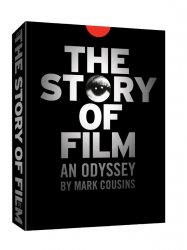 , 15h15
, 15h15Genres Documentary
Themes Documentary films about business, Documentary films about the film industry
Actors Alexandre Sokourov, Norman Lloyd, Lars von Trier, Paul Schrader, Kyōko Kagawa, Haskell Wexler
Roles Self
Rating83%





L'histoire du cinéma international racontée à travers l'histoire de l'innovation cinématographique. Couvrant six continents et douze décennies, il montre comment les cinéastes sont influencés par les événements historiques de leur époque et par les autres cinéastes.

Great Directors (2009)
, 1h30Origin USA
Genres Documentary
Actors David Lynch, Todd Haynes, Stephen Frears, Agnès Varda, Catherine Breillat, Richard Linklater
Roles Self
Rating63%





Great Directors features interviews with Bernardo Bertolucci, David Lynch, Stephen Frears, Agnes Varda, Ken Loach, Liliana Cavani, Todd Haynes, Catherine Breillat, Richard Linklater and John Sayles.

Directed by Daniele Ciprì, Franco Maresco
Origin Italie
Genres Documentary
Actors Ciccio Ingrassia, Lino Banfi, Bernardo Bertolucci, Mario Merola, Lando Buzzanca, Vittorio De Sica
Roles Self
Rating73%





Le film évoque la carrière du duo comique sicilien qui compta parmi les plus célèbres des acteurs dans leur pays, Franco Franchi et Ciccio Ingrassia ; en utilisant des archives de leur répertoire et des témoignages originaux — par-dessus tout, ceux de la famille et des amis des réalisateurs — il imprime en quelque sorte à la pellicule son propre et authentique récit cinématographique.
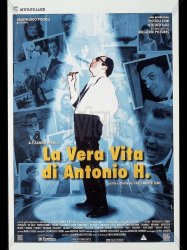
The True Life of Antonio H. (1994)
Directed by Enzo Monteleone
Genres Drama, Comedy
Actors Alessandro Haber, Bernardo Bertolucci, Giuliana De Sio, Ennio Fantastichini, Massimo Ghini, Nanni Loy
Roles Self
Rating65%





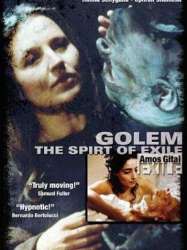
Golem, the Spirit of Exile (1992)
Directed by Amos Gitaï
Origin Israel
Genres Drama
Themes Films about religion, Films about Jews and Judaism, Golem
Actors Hanna Schygulla, Vittorio Mezzogiorno, Marisa Paredes, Samuel Fuller, Mireille Perrier, Sotigui Kouyate
Roles Le Maître de la Cour
Rating58%





C'est le deuxième volet d'une trilogie sur le golem, personnage mythique des légendes juives.
Director

Me & You (2012)
, 1h43Directed by Bernardo Bertolucci
Origin Italie
Genres Drama
Themes Films about families
Actors Veronica Lazăr, Jacopo Olmo Antinori, Sonia Bergamasco, Tea Falco
Rating64%





Un adolescent introverti (Antinori) et sa demi-sœur (Tea Falco) découvrent des secrets de famille...

The Dreamers (2003)
, 1h56Directed by Bernardo Bertolucci
Origin France
Genres Drama, Romance
Themes L'adolescence, Films about films, Films about children, Films about families, Politique, Films about sexuality, La sexualité des mineurs, Histoire de France
Actors Michael Pitt, Eva Green, Louis Garrel, Anna Chancellor, Robin Renucci, Jean-Pierre Kalfon
Rating71%





Matthew (Michael Pitt) is an American exchange student who has come to Paris to study French. While at the Cinémathèque Française protesting the firing of Henri Langlois, he meets the free-spirited twins Théo (Louis Garrel) and Isabelle (Eva Green). The three bond over a shared love of film.
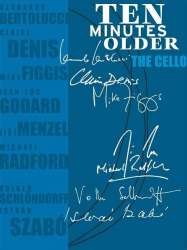
Ten Minutes Older: The Cello (2002)
Directed by Werner Herzog, Jim Jarmusch, Mike Figgis, Wim Wenders, Chen Kaige, Volker Schlöndorff, Bernardo Bertolucci, Jean-Luc Godard, István Szabó, Claire Denis, Spike Lee, Victor Erice, Aki Kaurismäki, Jiří Menzel, Michael Radford
Genres Drama, Science fiction, Musical theatre, Romance
Actors Valeria Bruni Tedeschi, Dominic West, Ildikó Bánsági, Alex Descas, Bibiana Beglau, Irm Hermann
Rating65%






Besieged (1998)
, 1h33Directed by Bernardo Bertolucci
Genres Drama, Romance
Themes Films about immigration, La précarité
Actors Thandie Newton, David Thewlis, Claudio Santamaria, Veronica Lazăr, Cyril Nri
Rating67%





David Thewlis plays eccentric English pianist and composer Mr. Kinsky, who lives in a very old, but charming villa in Rome. Thandie Newton plays his housemaid Shandurai, an African refugee whose husband is a political prisoner on “the Black continent”. Kinsky falls in love with Shandurai, sends her gifts regularly, for which she is often mad. Once, having presented her ring, he dares to express the love he feels for her, but she refuses him angrily. When he asks her what he should do to make her love him, she shouts, “Get my husband out of jail!” Then Kinsky for the first time realizes that Shandurai is married.

Stealing Beauty (1996)
, 1h48Directed by Bernardo Bertolucci
Origin United-kingdom
Genres Drama, Comedy-drama, Romance
Themes Films about sexuality, Films about virginity
Actors Liv Tyler, Joseph Fiennes, Jeremy Irons, D. W. Moffett, Sinéad Cusack, Rachel Weisz
Rating65%





Lucy Harmon, an American teenager, arrives in the lush Tuscan countryside to be sculpted by a family friend who lives in a beautiful villa there. Lucy visited there four years earlier and exchanged a kiss with an Italian boy with whom she hopes to become reacquainted. Lucy's mother, who lived in the villa, has committed suicide since then. Lucy also hopes to discover the identity of her father, who her mother hinted was a resident of the villa. Once there, Lucy meets and befriends a variety of eccentric locals who were companions of her mother, and begins to form relationships and connections with each of them, specifically with Alex Parrish.

Little Buddha (1993)
, 2h3Directed by Bernardo Bertolucci
Origin Italie
Genres Drama, Historical
Themes Films about religion, Films about Tibet, Films about Buddhism
Actors Keanu Reeves, Bridget Fonda, Chris Isaak, Jo Champa, Bhisham Sahni, Anupam Shyam Saikia
Rating61%





Tibetan Buddhist monks from a monastery in Bhutan, led by Lama Norbu (Ruocheng Ying), are searching for a child who is the rebirth of a great Buddhist teacher, Lama Dorje (Geshe Tsultim Gyeltsen). Lama Norbu and his fellow monks believe they have found a candidate for the child in whom Lama Dorje is reborn: an American boy named Jesse Conrad (Alex Wiesendanger), the young son of an architect and a teacher who live in Seattle. The monks come to Seattle in order to meet the boy.
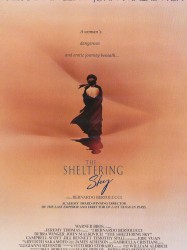
The Sheltering Sky (1990)
, 2h18Directed by Bernardo Bertolucci
Origin United-kingdom
Genres Drama, Adventure, Romance
Themes Films set in Africa, Le désert
Actors Debra Winger, John Malkovich, Campbell Scott, Jill Bennett, Timothy Spall, Éric Vu-An
Rating66%





Three Americans from New York arrive in Tangier in 1947. Port Moresby (John Malkovich) and his wife Kit (Debra Winger) are accompanied by their friend George Tunner (Campbell Scott) on a trip that will take them deep into the Sahara Desert. Tunner observes, "We're probably the first tourists they've had since the war" to which Kit replies, "We're not tourists. We're travelers." While Tunner plans to return home in a few weeks, Port and Kit plan on staying for a year or two.

The Last Emperor (1987)
, 2h43Directed by Bernardo Bertolucci
Origin Italie
Genres Drama, Biography, Historical
Themes Films about children, Politique, Political films, Films about royalty
Actors John Lone, Joan Chen, Peter O'Toole, Victor Wong, Dennis Dun, Ryūichi Sakamoto
Rating76%





The film opens in 1950, five years after the capture of Puyi by the Red Army when the Soviet Union entered the Pacific War in 1945 and his having been kept in their custody. In the recently established People's Republic of China Puyi arrives as a political prisoner and war criminal at the Fushun Prison. Soon after his arrival, Puyi attempts suicide, which only renders him unconscious.
 Connection
Connection





